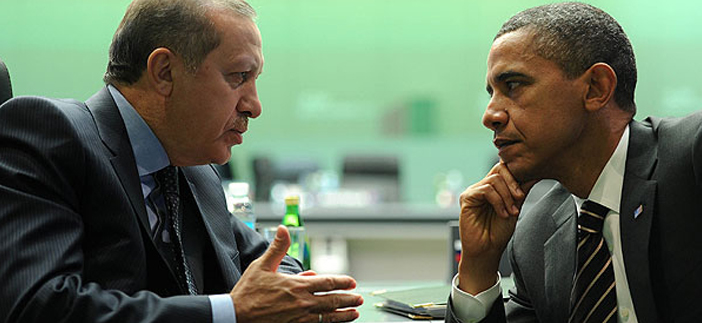
From Ted Galen Carpenter, the National Interest: It is important for U.S. leaders and the American public to understand the reasons for Ankara’s foreign-policy shift. In addition to Turkey’s outreach to other Muslim nations—in part to foster Turkey’s growing eastward pursuit of economic opportunities—there is an apparent quest for enhanced status as a serious regional power. Turkish leaders chafe at being expected to follow Washington’s lead on every issue. Deferring to the United States may have made sense in the bipolar strategic environment of the Cold War, when Soviet power and intentions appeared to pose a serious threat to Turkey’s security and the United States was the only country that could provide effective protection. But the situation in the twenty-first century is much different. The possible threats are both less serious and more diffuse. Therefore, blindly following Washington’s policy lead is not only unnecessary, it could be counterproductive to Turkey’s interests.
Turkey is not the only mid-size regional power that seems to have reached that conclusion. One sees manifestations of similar behavior on the part of such countries as Brazil and Indonesia. The policies of all three countries appear to reflect a drive for the twin goals of greater policy independence and greater prestige.
Without the existence of a mutual, great-power security threat to keep allies in line, Washington will find the kinds of policy deviations that Ankara is exhibiting to be more and more the norm. The bottom line is that Turkey is likely to be a somewhat unpredictable, independent regional power rather than a reliable ally of the United States in future years—notwithstanding the boilerplate professions of solidarity coming from the Turkish embassy and the U.S. State Department.
But it is also crucial not to exaggerate the extent of the change—as Governor Perry did in an especially clumsy and inflammatory fashion. Instead, the United States needs to adjust gracefully to a more challenging and nuanced relationship between the two countries. Just because Turkey has become a more independent policy actor does not mean that it is now an adversary, much less a terrorist adversary.
Ted Galen Carpenter, a senior fellow at the Cato Institute, is the author of eight books on international affairs. He is also a contributing editor to The National Interest. (photo: Justice and Development Party/AKP)
Image: akp%201%2024%2012%20erdogan-obana.jpg
